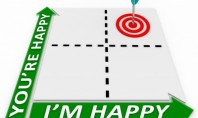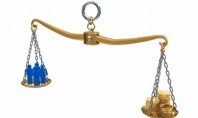On dustbins and the price of personal data

A recent article in the UK’s FT, Companies scramble for consumer data, June 12th 2013, shared some intriguing but puzzling insights into the market for personal information. Perhaps the strangest was a proposition which seemed to suggest a complete inversion of normal market economics.
The reporter, Emily Steel, started her article by observing that: “Corporate competition to accumulate information about consumers is intensifying … pushing down the market price for intimate personal details to fractions of a cent.” This is very strange indeed because normal market dynamics suggest that as demand rises, all other things being equal, the price should rise rather than fall.
The article was accompanied by a calculator that estimated the market value of the reader’s own personal data which returned values of less than a dollar – and often a lot less than a dollar (I know because I tried it multiple times changing my answers to see what happened). Again, I find this puzzling given the billion dollar valuations given to companies that gather and sell consumer data.
To make sense of these rather puzzling propositions, I think we need to understand that the way personal data is currently gathered and sold is analogous to people spending their days going through your dustbin and selling the information that they found in the local pub later that evening.
As the buyer, you’re not quite sure about the provenance of the data nor about its significance. And you only have information gleaned from the contents of their rubbish bins, not from their lives themselves. As the seller, if you can go through other people’s dustbins, so can anybody else, and when they hear that you are making money by doing this the chances are that they will too. And as sellers of the same ‘commodity’, if they have no other differentiator to offer in the pub later that evening then they’ll undercut your prices. And the more that happens, the more buyers you’ll need to find to maintain income levels.
But there is a better way. Wouldn’t it be better if the brands that want to talk to you could knock on your front door, tell you that they would like to get some information from you, and offer to give you some compensation for your time and trouble? Given that that is a reasonable offer, the chances are that you will say “yes”.
Buyers: think about it, it makes sense.
Sellers: beware! Current methods are neither ethical nor sustainable.
The rest of us: let’s put padlocks on our dustbin lids! Seriously, it’s time to realise our data has value for us.




















